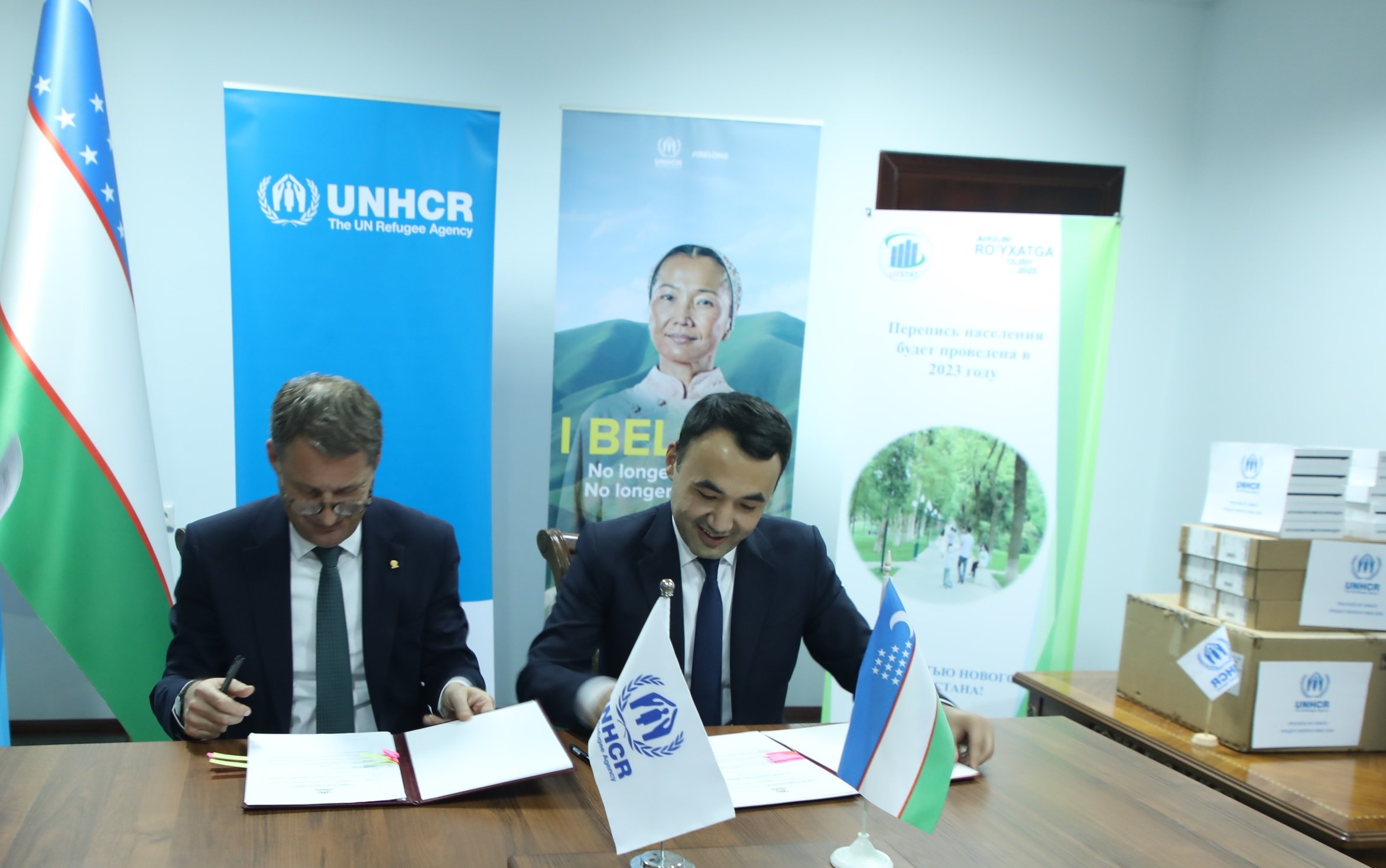Censuses provide a critical opportunity for governments to gather statistics and information on the situation of stateless persons. UNHCR is pleased to assist Uzbekistan’s collection, analysis and dissemination of data on stateless persons, in line with the principle of “leaving no one behind”, to support the achievement of the legal identity of all persons (SDG 16.9) and other goals of the 2030 Agenda of Sustainable Development.
“Improving qualitative and quantitative data on statelessness is one of the action points of the Global #IBelong Campaign to End Statelessness by 2024. UNHCR appreciates Uzbekistan’s commitment to mapping the full extent of statelessness, important to continue good progress towards ending statelessness on its territory. Today the right of every person to a nationality is as critical as ever.” said Hans Friedrich Schodder, UNHCR Representative for Central Asia.
Statelessness is estimated to affect millions of people around the world but measuring the full extent of statelessness is complex given that stateless people are often undocumented and remain unseen and unheard. People who are not accepted as nationals of any country can be deprived of basic rights, including civil and political rights such as freedom of movement, freedom from arbitrary detention, and political participation. Statelessness also affects their socio-economic rights such as education, employment, social welfare, housing and healthcare.






